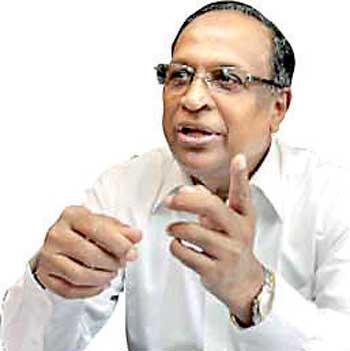Reply To:
Name - Reply Comment
 Former MP M.M .Zuhair said yesterday it would be unlawful to ban Burqas and Madrasas.
Former MP M.M .Zuhair said yesterday it would be unlawful to ban Burqas and Madrasas.
Issuing a statement, he said some observations and recommendations of the Commission on Easter Sunday attacks are invasive of the absolute protection given to every person under Article 10 of the Sri Lanka Constitution.
He said the Commission’s report though good in parts, can be seen as an attempted assault on Islam for the heinous crimes of a dozen suicide bombers.
The right to the freedom stated in Article 10 is ‘assured to all religions’ under Article 9. No one, not even Presidential Commissions can invite or promote the State or any limb of the Executive or Judiciary to violate the freedom guaranteed under Article 10. This protection is guaranteed notwithstanding any national security concerns, as the law stands today.
In this constitutionally protected background, the statement made on Saturday by a government Minister that he has signed and gazetted his order banning the right of women to wear Burqa styled dress and that Madrasas will also be banned soon, stands condemned as a violation of Article 10 read with Article 9 of the Constitution.
In addition to the violation of the Constitution, the first of the two constitutes an unlawful attack on the honour and reputation of women as declared in Article 17 of the International Covenant on Civil and Political Rights (ICCPR), an international treaty to which Sri Lanka is a party.
The second one violates Article 18(4) of the ICCPR, “The State Parties to the present Covenant undertake to have respect for the liberty of parents and when applicable, legal guardians to ensure the religious and moral education of their children in conformity with their own convictions”.
Articles 9 and 10 of our Constitution cannot be restricted on national security or other grounds. No one can violate the oath taken to uphold the Constitution. It does not appear that the minister has obtained the advice of the Attorney General before the alleged signing of the purported ban.
Coincidentally regarding the banning of the face cover the UK representative has taken a clear position at the third informal pre-UNHCR discussions that banning face veils would ‘stigmatise marginalised Muslim women’ in Sri Lanka.
It is sad to see the Sri Lankan authorities are struggling hard to add to the list of Sri Lanka’s alleged violations of human rights laws already drafted, inter alia in preambular paragraph 14 at the UNHCR and which draft has already called for the ‘prosecution of all those responsible for the violations of human rights laws’.
That could possibly include all those aiding, abetting and approving such gross violations.